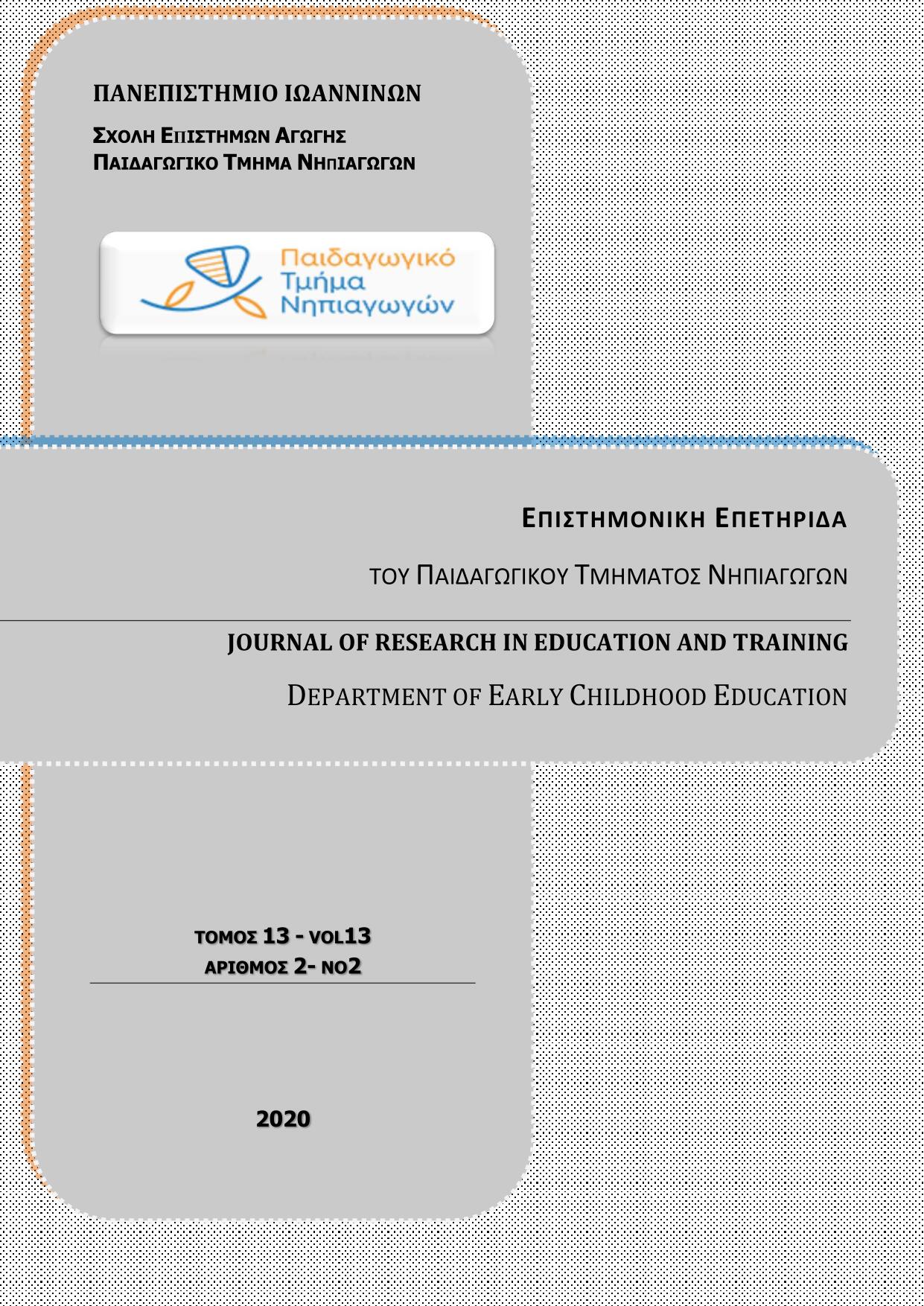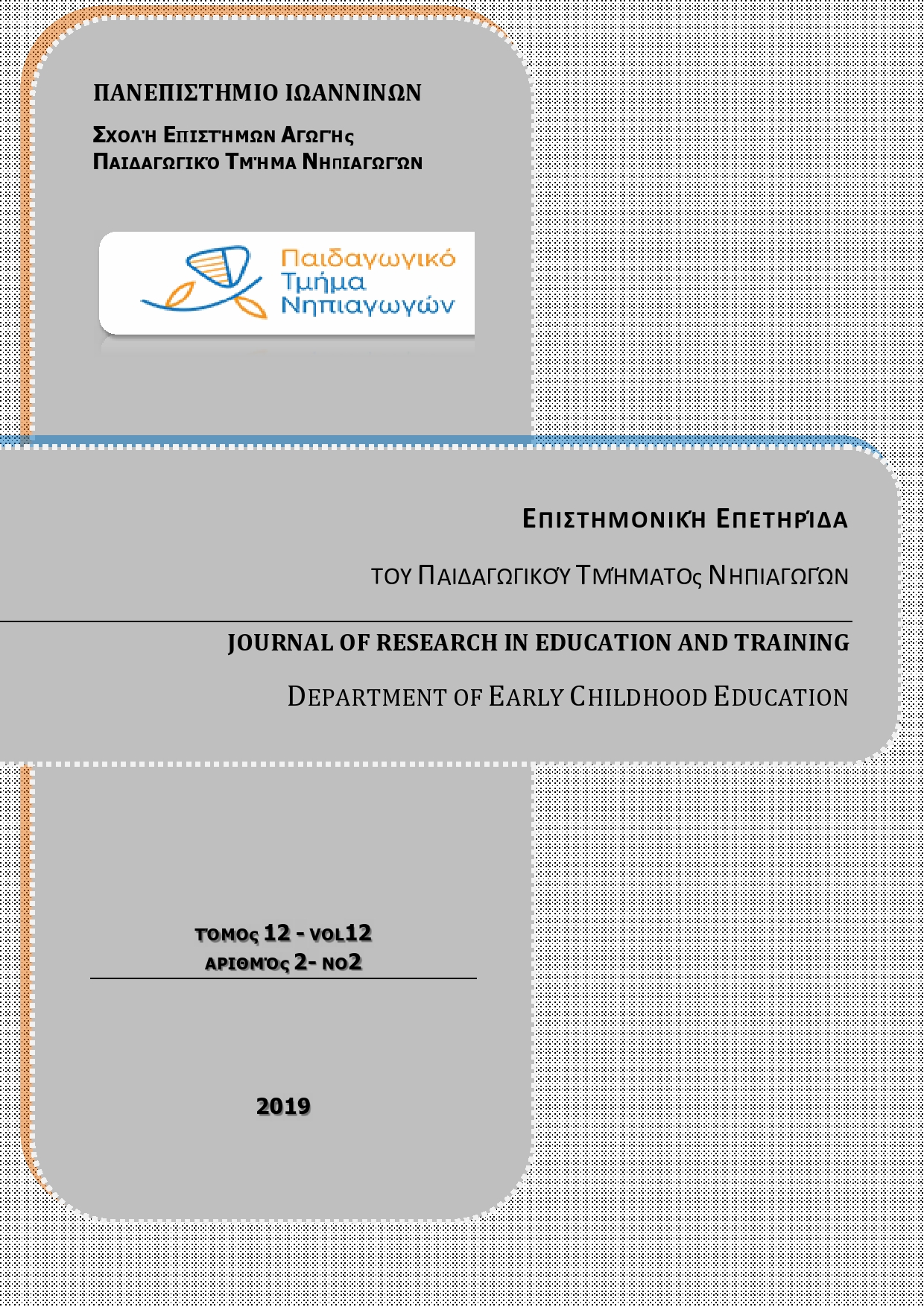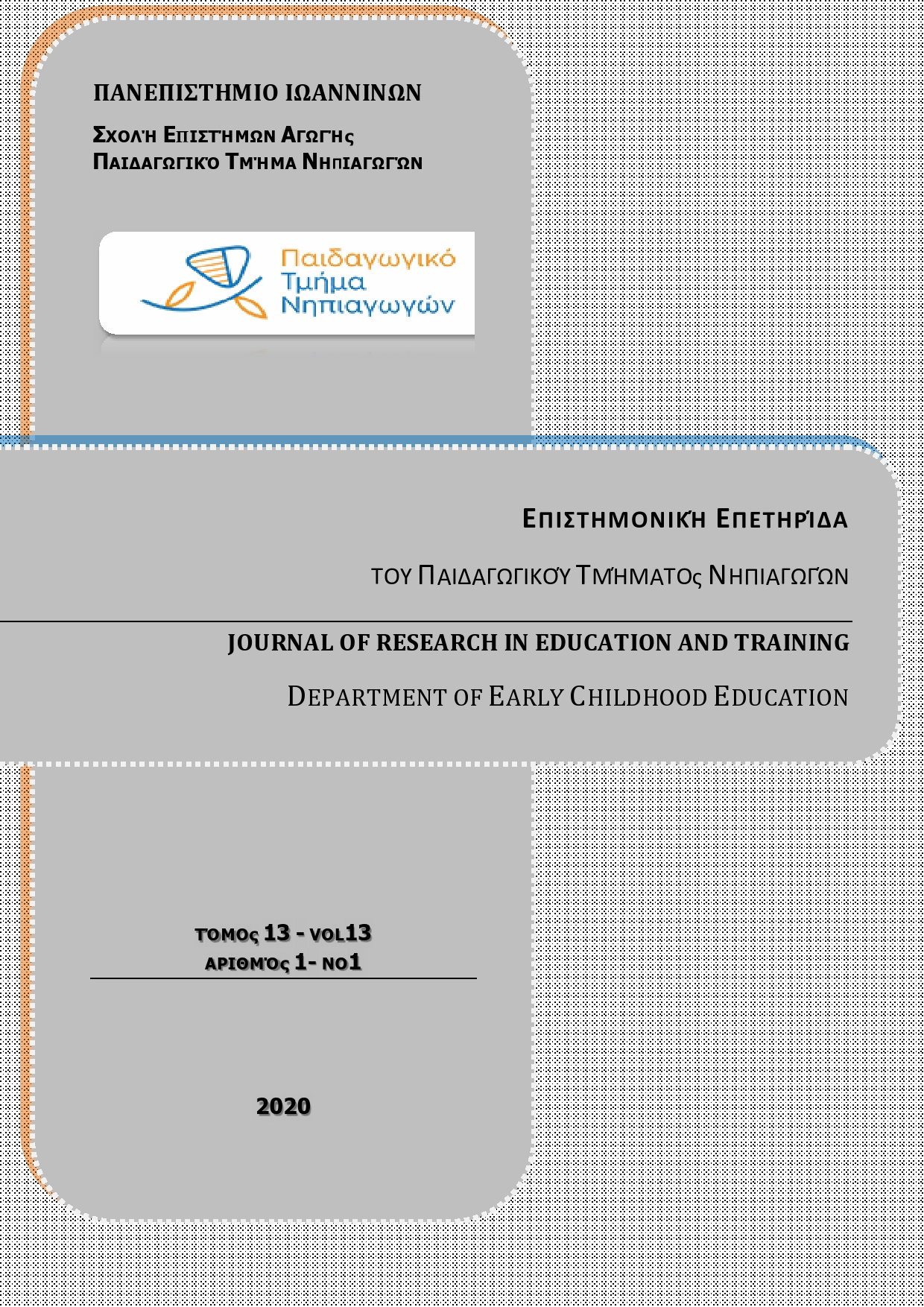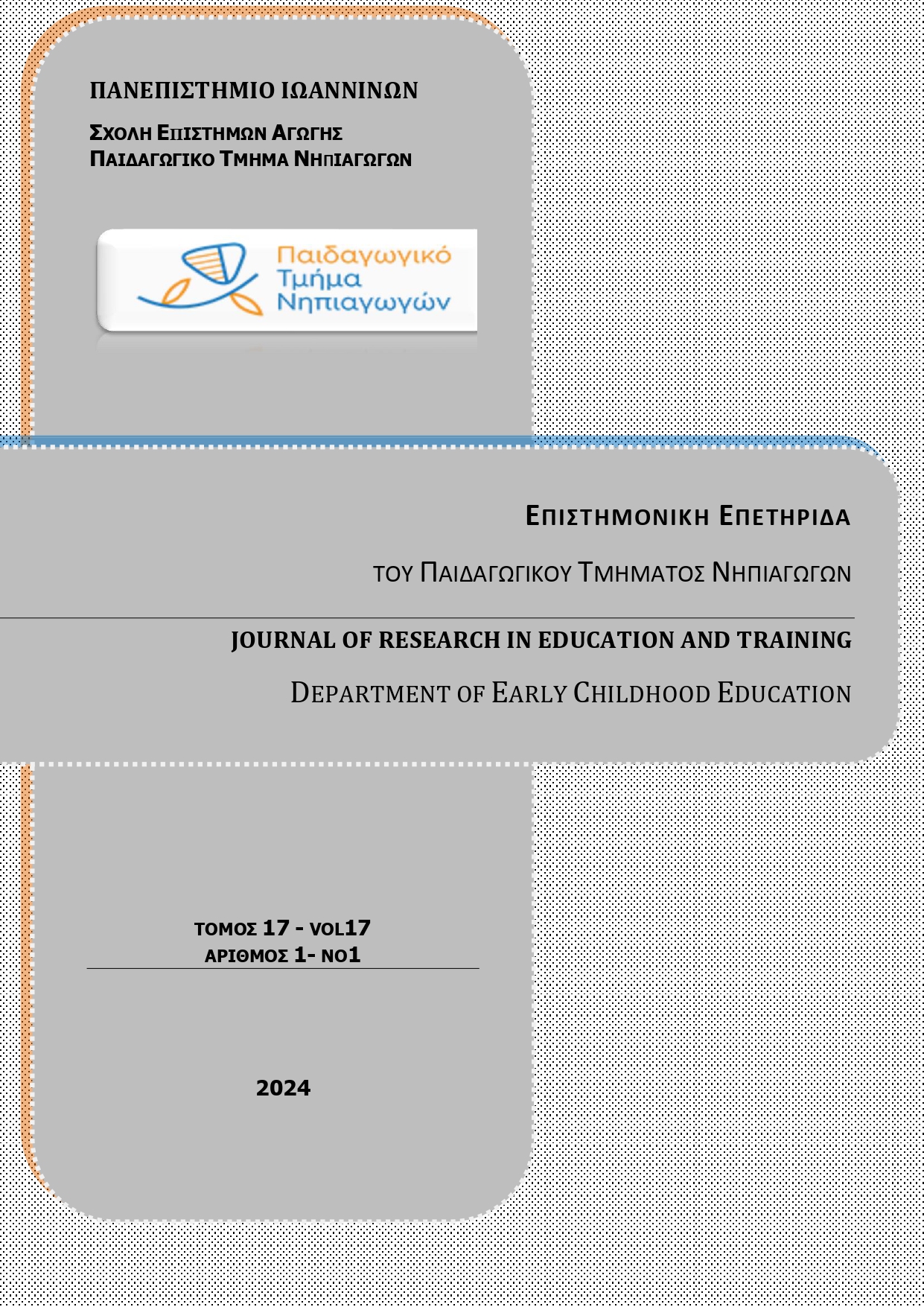Coping with Specific Learning Difficulties
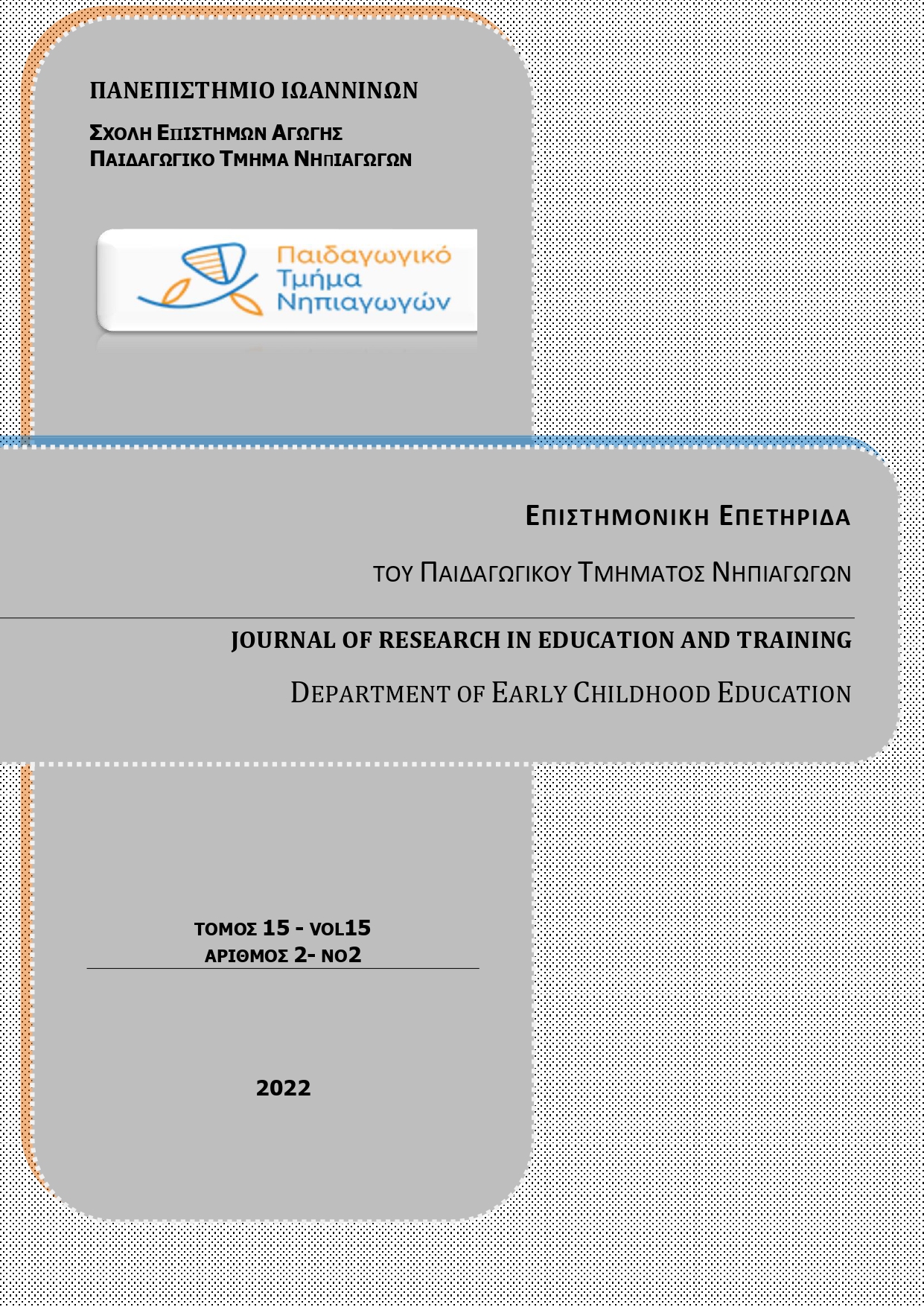
Abstract
Over the last three decades, teachers and parents lay emphasis on the learning difficulties that children face at school. A significant number of students fail systematically, as they lack early detection of learning difficulties or effective intervention. The present text examines a student in a more general context, with information related to early childhood, considering parameters such as family, school, and social environment. Then, his difficulties are mentioned in detail on a practical level, as well as the ways to deal with them, through the implementation of an individualized intervention program, which responds focused on the needs of the specific student. Finally, data are provided for the development of cooperation with parents, as well as with institutions-structures that enhance the possibility of intervention
Article Details
- How to Cite
-
Kaliotsou, I., Kougioumtzis, G. A., Fella, A., Sofologi, M., Bonti, E., Kamari, A., & Papantoniou, G. (2022). Coping with Specific Learning Difficulties. Journal of Research in Education and Training, 15(2), 1–22. https://doi.org/10.12681/jret.28865
- Issue
- Vol. 15 No. 2 (2022):
- Section
- Articles

This work is licensed under a Creative Commons Attribution-NonCommercial-ShareAlike 4.0 International License.
Authors who publish with this journal agree to the following terms:
- Authors retain copyright and grant the journal right of first publication with the work simultaneously licensed under a Creative Commons Attribution Non-Commercial License that allows others to share the work with an acknowledgement of the work's authorship and initial publication in this journal.
- Authors are able to enter into separate, additional contractual arrangements for the non-exclusive distribution of the journal's published version of the work (e.g. post it to an institutional repository or publish it in a book), with an acknowledgement of its initial publication in this journal.
- Authors are permitted and encouraged to post their work online (preferably in institutional repositories or on their website) prior to and during the submission process, as it can lead to productive exchanges, as well as earlier and greater citation of published work (See The Effect of Open Access).



